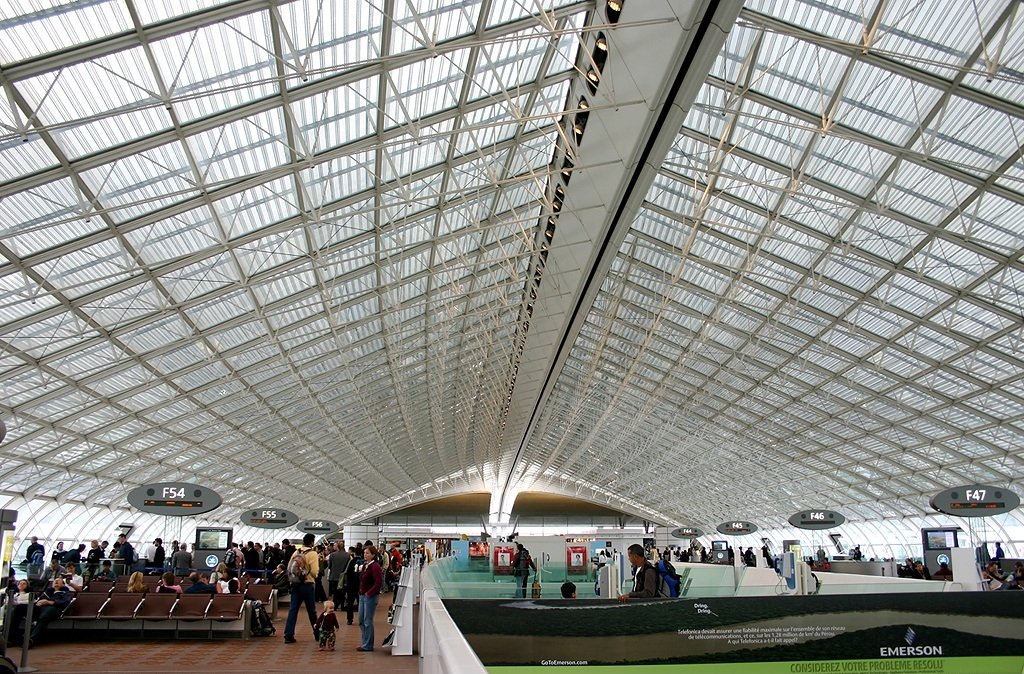Remembering Sir Alfred Mehran
Charles de Gaulle Airport, Paris
Photo Courtesy of Dale Coleman
Mehran Karimi Nasseri, best known as Sir Alfred, arrived at Charles de Gaulle airport in 1988 with a one-way ticket to London and no passport. He would remain at the airport for 18 years.
In Paris, he told airport officials his papers had been stolen, and was allowed to pass through to Heathrow, but this was as far as he would get. He was born in Soleimani, then under British Jurisdiction, to an Iranian father and British Mother. Upon arriving in London, Alfred claimed to be a British citizen, but with no proof of identity or status as an Iranian refugee, he was forced to return to Charles de Gaulle airport. The court ruling, whilst darkly comic, ended in a messy compromise, plunging Alfred into a static nightmare. French authorities claimed he’d entered France illegally but there was no country to deport him to. The airport could not evict him and Alfred could not leave. Trapped in the airport, lawyers and authorities assured him they would fix it. He need only wait, and he did. For 16 years.
For the full 18 years Alfred spent at the airport, he lived between a Pizzeria and an electronics store on two red plastic benches pushed together; just big enough to sleep on with his hands tucked beneath his head. It was here he was able to carve out space to exist. Nicknamed “Sir Alfred”, a name he came to prefer, he was cared for by airport employees and passengers; provided with toiletries and meal coupons left over from first class and visited by those who passed through. His living nightmare was a screenwriter's goldmine. When reporters asked if he’d seen “The Terminal”, the film for which Steven Spielberg reportedly paid £275,000 to buy the rights to his life's story, Alfred responded only, “there aren’t any theatres here.”
The Terminal was not the only film inspired by Alfred, and as his story spread he was quickly encircled by journalists and filmmakers. Media coverage grew so intense he became convinced the production companies profiting from his story would come to his rescue. Paul Berczeller, who lived with Alfred at the airport for a year whilst working on his art-house documentary, describes him as a confused, hopeful man following The Terminal’s release. Thrilled by media attention, Alfred felt “Tom Hanks was going to visit his bench”, and he would get his passport. The reality is the Terminal took very little from his life. The poster for the film hanging proudly beside him, he remained on his bench, waiting. Reporters said his eyes would often fall shut from boredom. It would be years until he left the airport.
In 1999 Alfred was finally free but he did not go. He refused to sign papers listing his citizenship as Iranian and his name as Mehran. The Airport medical director believed Alfred was “scared to leave his bubble world”. Despite appearing healthy upon arrival, the time it took to negotiate identity papers had culminated in the deterioration of his physical and mental health. It was only when a medical condition forced him to leave, seven years later, that Alfred finally saw the outside world.
In the years before he left, Alfred was the subject of further documentaries, including co-authoring his critically acclaimed autobiography The Terminal Man. Yet whilst his story has now been told, it is saddening how little global attention did to drive justice; instead of questioning the immigration policies that had kept Alfred trapped in an undignified and inhumane fishbowl, cared for not by the authorities, but tourists and airport staff, many profited from his story which was exploited for entertainment. Mehran Karimi Nasseri became so bound to this image that, in mid-September, he returned to the space which imprisoned him. Where he lived once again “as a homeless person in the public space of the airport” until his death last November, in Terminal 2F.
It's tempting to view Alfred’s death with the inertia he endured in life, picking through his story for novel, inspiring details. Rather than bringing justice for Alfred, he became cultural fodder, forever rendered The Terminal Man. Had Alfred been given the resources to secure a status of refuge or asylum, and treated with educated understanding as his mental state began to deteriorate, he would not have been dependent on the airport for his life. Indeed the airport would not have defined his life, as the media portrays. As Alfred’s ‘story’ concludes it’s important to acknowledge that his situation wasn’t, at its core, unique. It is a reality many who seek refuge across borders continue to endure.

